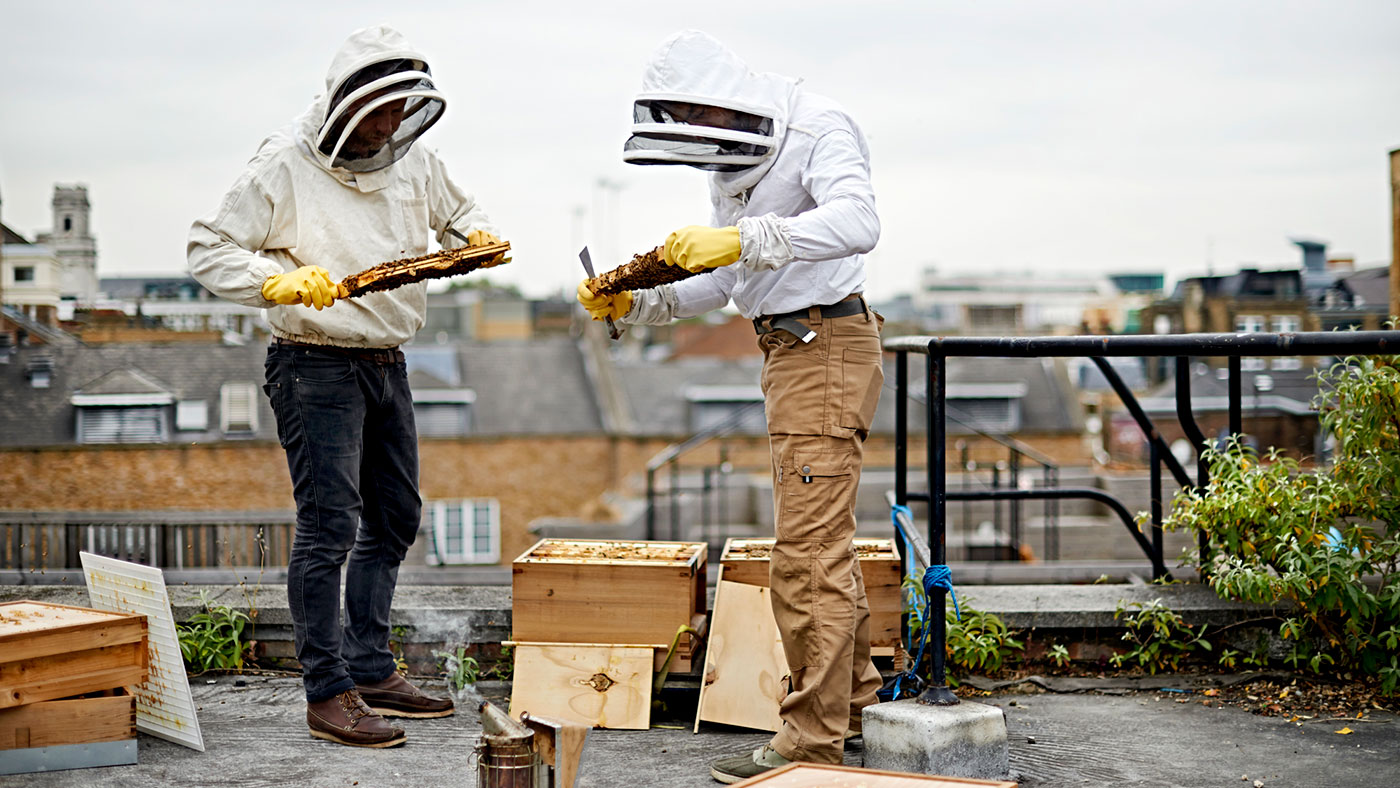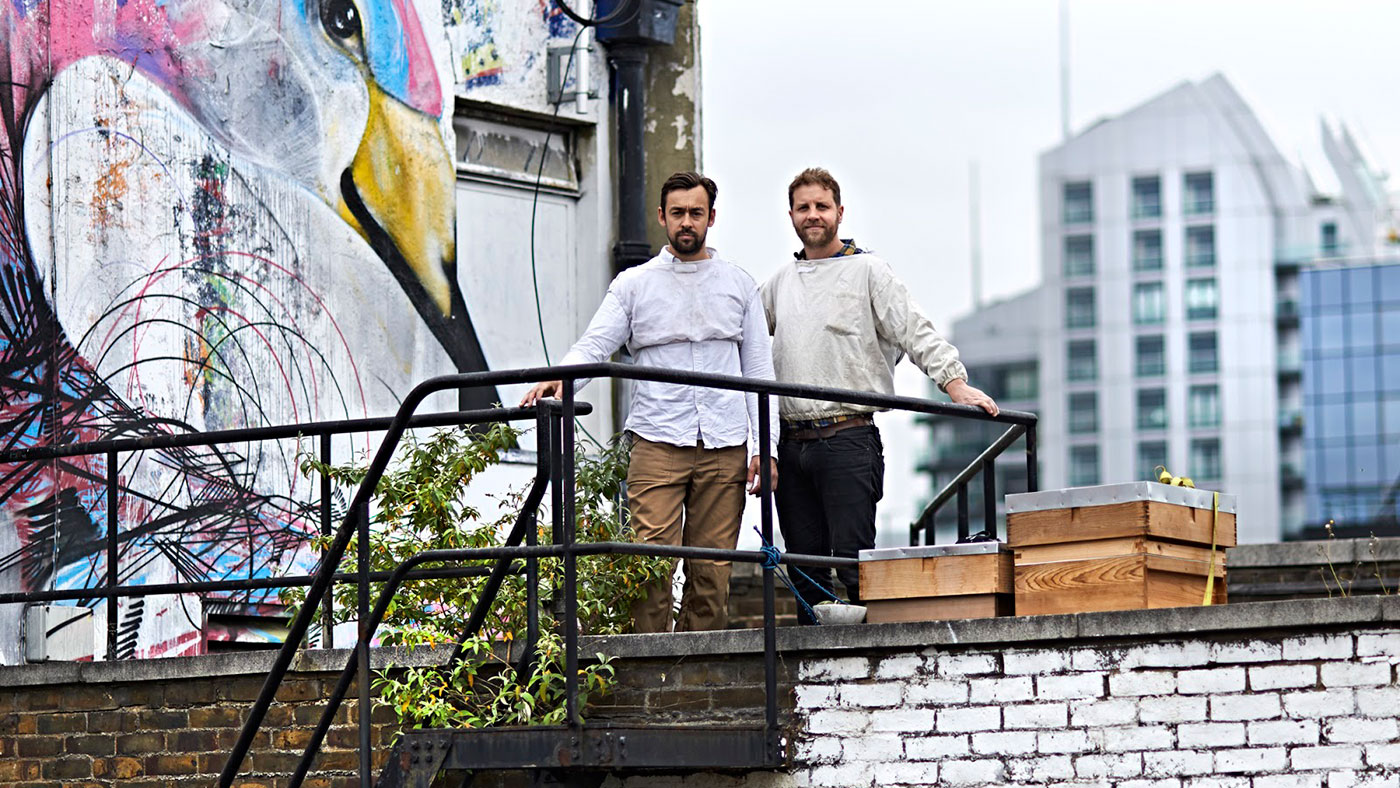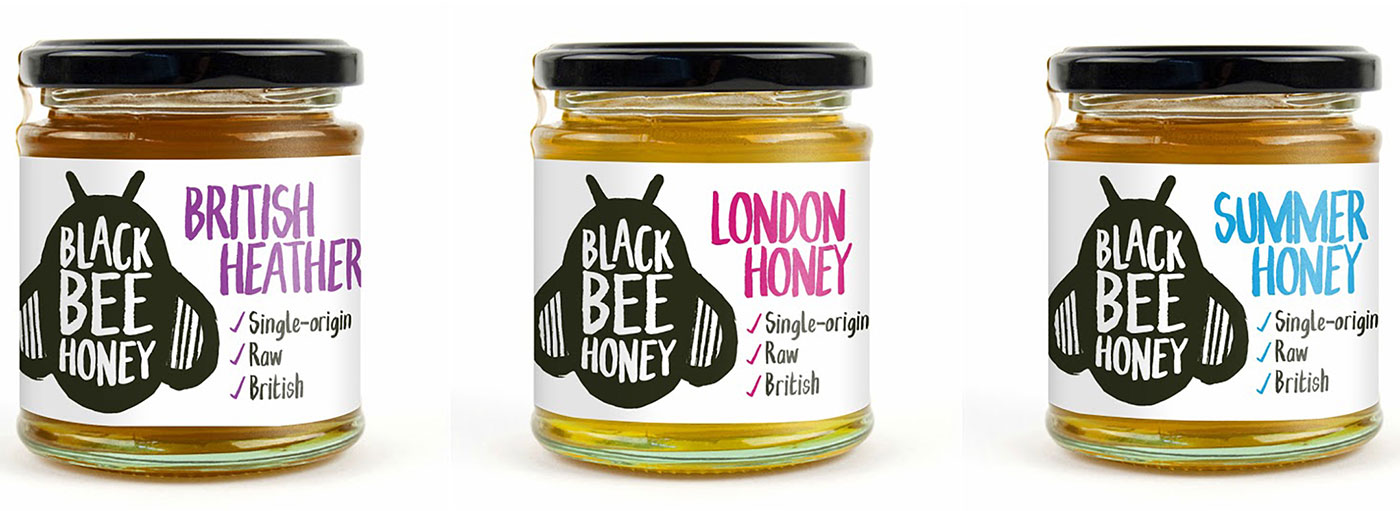Paul Webb on founding Black Bee Honey
The co-founder of the honey brand talks about the benefits of producing a raw product and why it's important for bees to thrive in the city

A free daily email with the biggest news stories of the day – and the best features from TheWeek.com
You are now subscribed
Your newsletter sign-up was successful
It all began when my business partner Chris and I went on a beekeeping course, and ended up loving it so much, that we went on a couple more. Chris then went travelling and worked on a bee farm in New Zealand. I was stuck in an office, reading his blog about daily adventures with the bees, and about how the company he worked for was renting hives to residents of Auckland. When he came back, we decided to try something similar in London.
We started by putting hives in friends' gardens. We got up to about 50 hives around the city, and ended up doing postcode honey – labelling it by the hive location, and selling it locally. That went on for five years, and we were both still working in graphic design. We came to realise how popular good quality raw honey is and decided to create Black Bee Honey – we have London honey from our own hives as a single product, and we source other honeys from around the country that are as good in quality as the honey we produce.

Creating and processing honey is pretty much the same thing whether you've got two hives, or 200. We check the bees throughout the season to make sure they've got a queen, they're healthy, and that they're not trying to swarm. If they swarm – which is the way they reproduce, and is a natural instinct – you'll lose a lot of your bees and you won't get honey. In August, the harvesting of the honey begins. We remove the honey from the hives, extract it, filter it, much like you'd find with the big honey brands. However, they usually import and blend honey from different places around the world. Sometimes they heat it to quite a high temperature to remove any potential bacteria, but honey is naturally antibacterial so it's not a necessary process.
The Week
Escape your echo chamber. Get the facts behind the news, plus analysis from multiple perspectives.

Sign up for The Week's Free Newsletters
From our morning news briefing to a weekly Good News Newsletter, get the best of The Week delivered directly to your inbox.
From our morning news briefing to a weekly Good News Newsletter, get the best of The Week delivered directly to your inbox.
We try to have as little intervention as possible from hive to jar. Raw honey is much better for your health, because you've got all of the active ingredients that haven't been destroyed through heating. Every honey has a different character, whether it's heather honey from Exmoor, wildflower from the Cotswolds, or a specific area of London, they'll all have different flavours and a different colour, and we're trying to preserve that to celebrate those individual characteristics. Good honeys support your immune system, and help you fight off different things. Local is good as well, from a sustainability point of view, as you're reducing the distance that the food has had to travel to get to you.

Most bee colonies in this country, and in a lot of places around the world, can only exist because beekeepers keep them in hives. The native bee, which is the black bee, almost died out completely due to lack of habitat, and there are currently attempts to bring it back. One of our producers has black bees in his hives in Somerset. Maintaining a healthy bee population also means not having too many bees in one area, which would mean extra competition for other pollinators such as butterflies. There are thousands of other pollinators that need that pollen and nectar, so it's about trying to increase biodiversity for lots of things, and that benefits bees as much as anything else.
There are things we can do to help promote this biodiversity. You can allow wildflowers to grow in your garden as well as growing native or pollinator-friendly plants and trees in your gardens; allow an area, which is not cut down, where wildflowers can grow; try to find alternatives to the pesticides which are harmful to bees, as these are often the most common in garden centres.
Every day, I have a spoonful of honey straight from the jar. We have a heather honey, which is harvested later on in the year, and it's so delicious that it sort of seems a shame to mix it with anything else.
A free daily email with the biggest news stories of the day – and the best features from TheWeek.com
PAUL WEBB co-founded Black Bee Honey with Chris Barnes in 2013 while they were both working in graphic design. A successful crowdfunding campaign last September meant they could dedicate their time to honey full time; blackbeehoney.co
-
 What are the best investments for beginners?
What are the best investments for beginners?The Explainer Stocks and ETFs and bonds, oh my
-
 What to know before filing your own taxes for the first time
What to know before filing your own taxes for the first timethe explainer Tackle this financial milestone with confidence
-
 The biggest box office flops of the 21st century
The biggest box office flops of the 21st centuryin depth Unnecessary remakes and turgid, expensive CGI-fests highlight this list of these most notorious box-office losers